South Side to his core, Luwane Pipkins is not afraid
From Chicago to Amherst, Luwane Pipkins leaves his mark.
February 15, 2018
Everything Luwane Pipkins does is reckless.
From his headfirst dribble drives to his pull-up, 30-foot jumpers, all of it is reckless. He’s not concerned about his well-being driving to the hoop, he’s not concerned with what anyone thinks about his shot selection, he’s not concerned with any of it.
But it’s a controlled sort of recklessness. He’s never wild as he attacks the rim, but he’s entirely willing to give up his body to find the finish if he needs to. And those parking lot 3-pointers may seem bold to outside observers, but he’s seen them go down enough to keep on taking them.
He knows what he’s doing, but it still takes a certain gall to make the choices he does — to play basketball the way he does. It takes someone that doesn’t fear the consequences, the backlash or the moment, and he surely doesn’t.
As Pipkins continues his breakout season for the Massachusetts men’s basketball team, both his game and his undaunted disposition have come to the forefront. He’s gone from a role-player to a star, a streaky-shooter to a deadly marksman, a decent guard to one of the Atlantic 10’s most prolific scorers.
He’s on pace to be just the fourth Minuteman to average over 20 points per game over a full season, and he’s already produced some of the greatest scoring explosions in the program’s history, all without flinching, without pause and without hesitation.
Because, after all, when you’ve seen what Pip has, what is there to be afraid of?
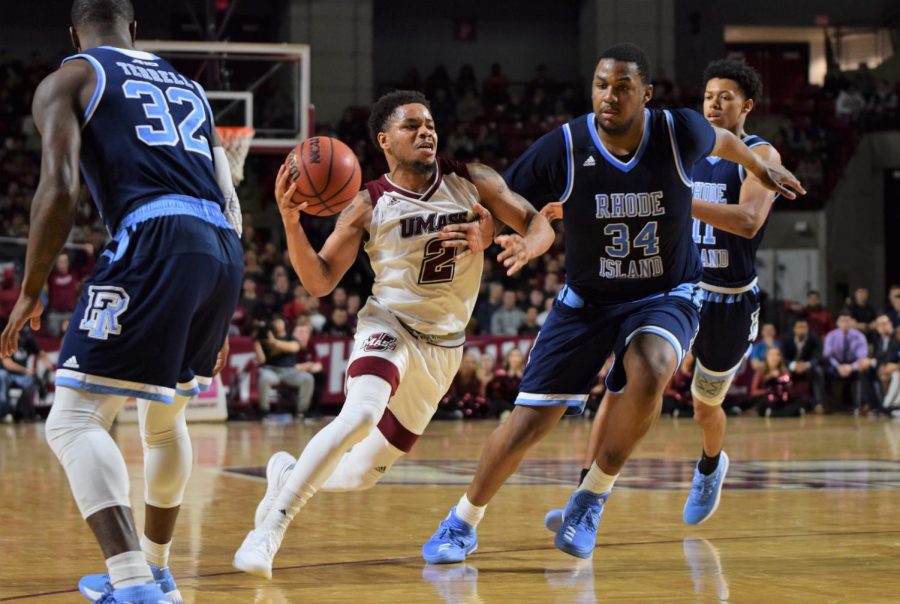 Katherine Mayo
Katherine Mayo
Englewood is home to about 26,000 people on Chicago’s South Side, where the poverty runs as rampant as the homicide, situated somewhere between hell and high water.
To call it a tough neighborhood would be an understatement: Englewood consistently ranks as one of the most dangerous areas in the city — a place where the median household income doesn’t reach $20,000 and a place from which few people escape.
Pipkins calls his home the “heart and soul” of Chicago, but he recognizes the sort of place he comes from. “Chiraq,” Spike Lee’s film on the prevalent gang violence of the city’s south side, is set in Englewood, where kids often find themselves with three options for their futures.
“Either you sell dope, you pick up a microphone or you pick up a ball,” Pipkins says. “If you don’t do one of those, you’re a lost soul in Chicago.”
Amherst is a world away from Englewood, but Pipkins’ roots remain firmly planted on the South Side. He’ll tell you he’s from Chicago and he’ll tell you with pride, nearly 1,000 miles from home but very much connected with the city that raised him.
He’s Chicago through and through, and he smiles as he talks about his city, dangerous as it may be. “I love being from Chicago,” he says, and it shows.
Pipkins is one of the lucky few that ever made it out of Englewood — the few that are destined for more. He says that “Chicago will suck you in real quick,” and a lot of people he knows didn’t make it out. They either couldn’t leave, or simply didn’t. He calls the city a drug, on which people get hooked and never escape.
Pipkins has lost enough people to the city to know the peril it poses — lost friends, siblings, classmates — all to the violence. Though he beams with pride as he talks about his city, his face falls a bit when he reflects on the cycle of violence and loss that pervades the place that hardened him.
But as much as he’s seen, Pipkins is still an inherently kind soul; UMass coach Matt McCall talks about how “Pip cares. He cares about people, he cares about his former coaches, his current coaches, his family — he really cares. He wears his emotions on his sleeve.”
With bad influences left and right, Pipkins knows it’s a blessing that he took that third option — that his destiny was basketball instead of a street corner, launching jumpers instead of selling dope.
Pipkins is a product of Bogan High School in the Ashburn neighborhood of Chicago, just west of Englewood. He played AAU ball for the Mac Irvin Fire, one of the city’s top programs. People knew his name before he even reached high school — the scrappy little guard from Englewood who didn’t back down from anyone or anything.
“He was a tough point guard,” said Mike Irvin, Pipkins’ AAU coach. “Everybody knew him in the city at a young age. He had a good buzz around him early on.”
He was one of the toughest kids in his age-group, a “small giant,” as Irvin puts it. Even now, Pipkins stands at just 5-foot-9 — he’s listed at 5-foot-11, but it doesn’t take long to get him to admit that’s a fantasy. But Pipkins always played above his stature.
As a freshman at Bogan, he had no problem going straight at the upperclassmen, adopting the program’s trademark toughness and running with it. Arthur Goodwin — “Goodie,” as Pipkins calls him — was his coach at Bogan, and calls him the most competitive kid he’s ever had.
Pipkins became a star at Bogan, the little guy taking the city by storm. He was on varsity as a freshman, drawing double-teams as a sophomore and averaging 28 points per game as a junior. Everyone in Chicago knew about him, but it was still just Bogan; a decent squad, but far from the powerhouse that programs like Simeon Career Academy and Stevenson High School had built over the years.
The Tigers were underdogs in the city championship against Simeon in 2015, but Pipkins didn’t shy from the moment. He led all scorers with 19 points and came up big down the stretch. With a city watching, a school on his back and ice in his veins, he went 10-11 from the free throw line to ice the upset, carrying the team to its first-ever city championship.
“Luwane basically put Bogan on the map,” Goodwin says. “He’s the face of Bogan still. Everybody knows about Luwane Pipkins.”
Pipkins was a four-star recruit, with offers from UMass as well as DePaul, La Salle, Valparaiso, Bradley and Northern Illinois. From the depths of inner city Chicago, he rose above the noise, above the violence, above the odds. He’s effectively escaped Englewood, but the city stays with him — you can take the kid out of Chicago, but you’ll never take Chicago out of the kid.
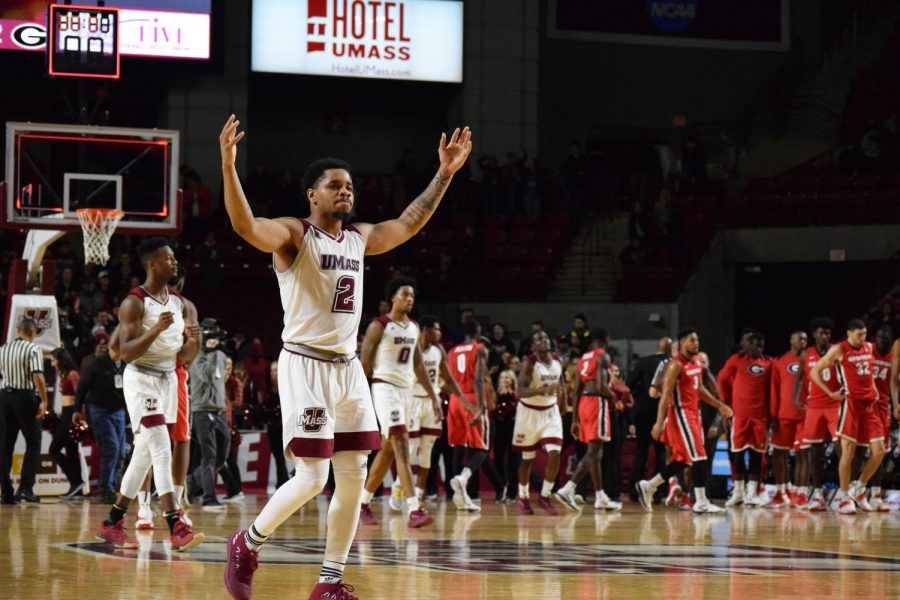 Katherine Mayo
Katherine Mayo
Three years removed from that city championship game, Pipkins is rising again and the A-10 has been put on notice.
A year ago, Pipkins was a decent role-player, averaging a hair over 10 points a night. These days, he lights up the box score on a nightly basis, charging headfirst at every defense in the conference without a second thought.
Big games for Pipkins are common: 34 points against Niagara, 25 against South Carolina, 30 against Providence, 27 against Saint Joseph’s, 28 against Dayton, the list goes on.
Flashes of potential have become flashes of greatness. At his best, Pipkins is a maestro on the hardwood, a slick ball-handler with a deadly first step and an uncanny ability to get the floater to drop or the layup to fall once he’s dusted you. He slides through traffic with ease, and can distribute once the defense has collapsed around him.
Sagging off so he can’t drive is far from the answer; Pipkins is even more comfortable bombing away from the jump, shooting 41 percent from 3-point range this season and knocking down heat-check triples like they’re layups. He’s a gunner at heart, and McCall has given him the green light.
On Jan. 10 came Pipkins’ finest hour — his magnum opus. With his team down 21 to La Salle at home, he proceeded to torch the Explorers to the tune of 44 points, leading the Minutemen back from the brink.
A particularly torrid second-half stretch saw Pipkins drop 17 points in just over six minutes, as he pieced together the greatest scoring evening UMass has ever seen, breaking the program’s single-game scoring record that had stood for 50 years.
Opposing coaches are taking notice of the newest mismatch in their scouting reports, as Pipkins has drawn praise game after game.
St. Joe’s coach Phil Martelli tabbed him as a likely First Team All-Conference selection, as well as the A-10’s Most Improved Player after Pipkins dropped 27 on his Hawks. After UMass upset Providence in December (thanks in large part to Pipkins’ 30-point eruption), Friars coach Ed Cooley said he loved watching him play: “He played with a swagger, played with a purpose. He’s a very good player.”
After that Providence win, McCall summed it up simply:
“He’s fearless, man,” McCall said. “He’s just fearless.”
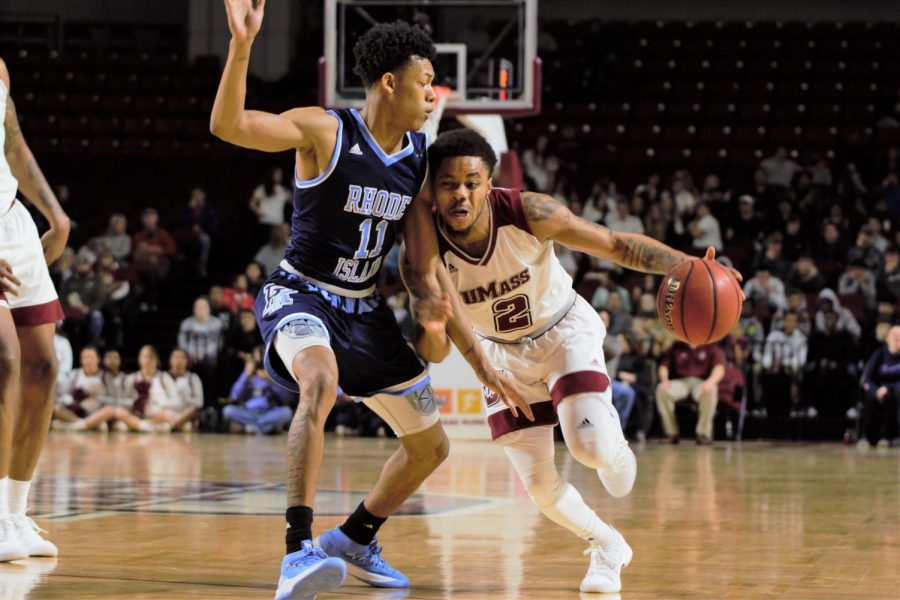 Katherine Mayo
Katherine Mayo
Everything about Pipkins, from his game to his toughness to his fearlessness, comes back to three square miles on the South Side. McCall’s characterization is shared by his predecessors in the Luwane Pipkins coaching tree, a group of men who have seen that same look in his eyes.
“’Fearless’ is a great way to sum him up,” Irvin says. “He defines what a player is from Chicago. Chicago is known for that fearless, tough kid who’s not afraid of the moment, who’s not afraid of anything.”
He’s always been this way, because he had to be. Luwane Pipkins plays with the biggest of chips on his shoulder, because he’s the product of unfavorable circumstances — the smallest kid on the court from the toughest part of the toughest city in America.
“It comes from where I come from, it comes from Chicago,” says Pipkins. “Ever since I been playing ball, I’ve been a fearless rascal. I was always smaller than everybody, so I just had to be tough. Coming from where I come from, you got to do something. You got to score, you got to defend, you got to be tough — you got to play the game like you love it.”
But the fearlessness doesn’t really come from basketball — it’s a by-product of Pipkins’ upbringing. Growing up in America’s neighborhood with the highest murder rate in all of Chicago, bred him to stay paranoid, but slowly bled the fear out of him.
“Where I’m from, I’ve seen people get shot down the street from my house,” he says. “I’ve seen people hit by cars, in gang fights, all types of stuff.”
Pipkins doesn’t run from his past. He doesn’t try and hide the struggles and the violence and the tragedy that shaped his existence. He wears it on his skin — literally.
Tattoos cover Pipkins’ arms and chest, and one particular piece of ink on the inside of his right forearm is a reminder of all he’s lost and all he’s escaped. He mentions that he’s “lost a few friends, a few homies. Siblings, too,” and he remembers every one.
The tattoo on his right arm reads, “Gone, but not forgotten,” along with a quote and the initials “D.H.”
It’s for one of his “best friends, a high school teammate,” Pipkins explained. “He got killed in some violence in Chicago, and this is honoring him. I just got his initials tatted with a quote that me and him always talked about back in high school.”
That city championship with Bogan is one of the great accomplishments of Pipkins’ basketball life, but it’s a sobering reminder of just how different things could’ve been. On the court with him that day was one of his best friends, Deionte Harris, and together they helped deliver the greatest moment in program history.
Pipkins left for UMass late that summer, saying goodbye to friends and family, Harris included. Pipkins was headed for bigger and better things, but expecting to visit his friends and family that were staying on the South Side during school vacations.
Three weeks into Pipkins’ first semester at UMass, Deionte Harris was shot and killed in Auburn Gresham, the neighborhood directly south of Englewood. He was 18 years old.
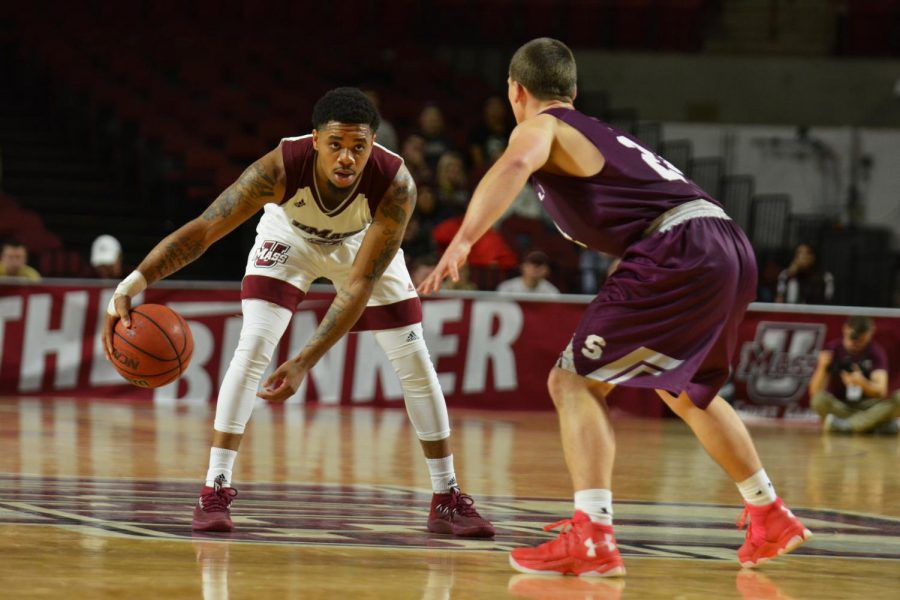 Collegian File Photo
Collegian File Photo
Pipkins takes Chicago with him everywhere he goes, from the city’s trademark toughness to its basketball culture to its local turns of phrase.
The words “shooters gon’ shoot” come out of Pipkins as often as those 30-footers, another thing he’s taken from Chicago. He says it all the time: in post-game press conferences, in post-practice interviews, in conversation with teammates, you name it.
Pipkins hears it from his friends and family back home all the time, and he even has Hailey Leidel, leading scorer for the UMass women’s basketball team, dropping that line on him.
“It’s just a slogan from back home,” Pipkins says. “‘Shooters gon’ shoot.’ Shoot till you hit, shoot till you miss, you know?”
Freshman guard Carl Pierre has heard those words from Pipkins’ mouth a thousand times, and will probably hear it a thousand more. “Oh my god, several times a week,” Pierre says with a laugh when asked about the frequency. “Just all the time.”
But it isn’t just a silly thing Pipkins says for laughs; it’s his offensive mantra, the source of his confidence. He believes every shot is going to go down, regardless of the absurd distance from which they originate. “To Luwane, there’s no one better than him,” Goodwin says. “He knows that, and he shows it on the court.”
His confidence is well-justified because he’s one of the best pure shooters UMass has ever seen. Irvin considers him one of the best pure shooters to ever come through his program with the Mac Irvin Fire, the only guys ahead of him including names like Tim Hardaway Jr., a first round pick in the 2013 NBA Draft who now plies his trade with the New York Knicks.
“He’s one of the best shooters that I’ve ever coached,” Irvin says. “His range is unlimited. Every time it comes off his fingertips, you think it’s going in.”
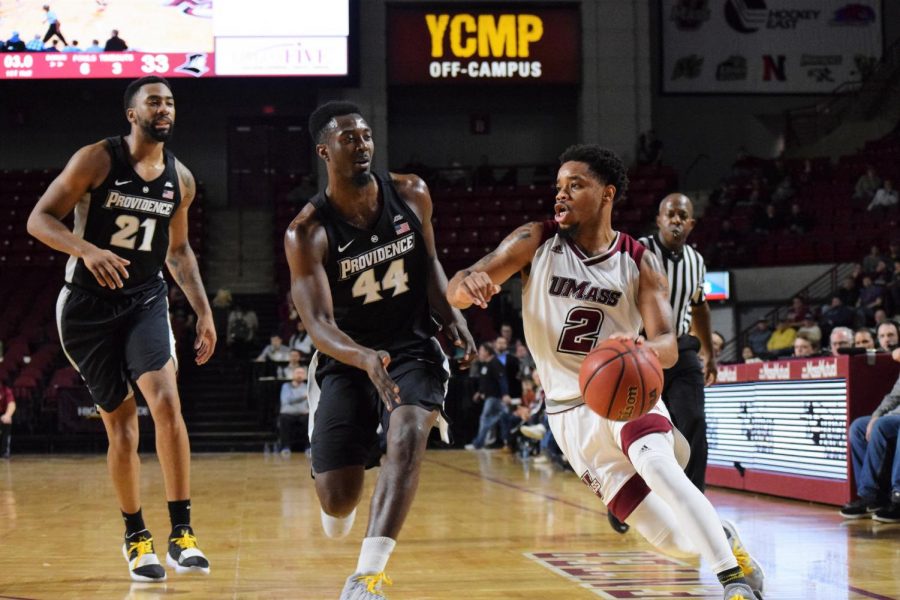 Katherine Mayo
Katherine Mayo
Pipkins is in his third year at UMass, and the people that witnessed his greatness on basketball courts across Chicago are still watching him. The entire city’s eyes fell on him when Bogan reached the city championship game in 2015, and they haven’t moved.
“The whole city of Chicago been following him,” Irvin said. “He’s putting up great numbers, big games, he’s doing what everyone thought he would do down there. We’re not surprised at the success Luwane is having. We knew it was going to happen, it was just a matter of time, and it seems like his time has come.”
Goodwin echoed that sentiment, saying that “everybody in Chicago been following him.” Pipkins loves his city, and its support means the world to him. He’s extremely appreciative to have certain people in his corner from Chicago — people still watching him, supporting him and rooting for him.
But he remains cautious. The key words for him are “certain people,” because he knows what sort of people might be interested in being a part of his life after he’s made a name for himself. He’s walked the streets of Englewood enough times to know how fragile trust can be.
“Where I’m coming from,” Pipkins says, “there’s a lot of people who say they got your back, and a lot of people don’t. They lie to you just until you get to that place, then they want something from you.”
Despite those concerns, he’s endlessly grateful to the city, and gives back where he can. He still lives in Englewood, still visits Bogan when he’s home and lends a hand to the next generation of Tigers — the kids who might have a chance to escape the poverty — the violence — like he did.
“Luwane still has a relationship with all my young guys at Bogan,” Goodwin says. “When he comes home he works out with them, they on Snapchat, Facebook, emailing. All of my young guys respect him. He’s the man to them.”
Pipkins has every intention of putting on for his city, for everyone that believed in him and everyone that doubted him.
“If somebody asks me, I’ll say I’m from Chicago with pride,” he says. “I just wear it on my back with pride.”
He loves Chicago, because Chicago made him. The city lifts him, motivates him, pushes him toward greatness, but it also keeps him grounded and reminds him how different things could have been.
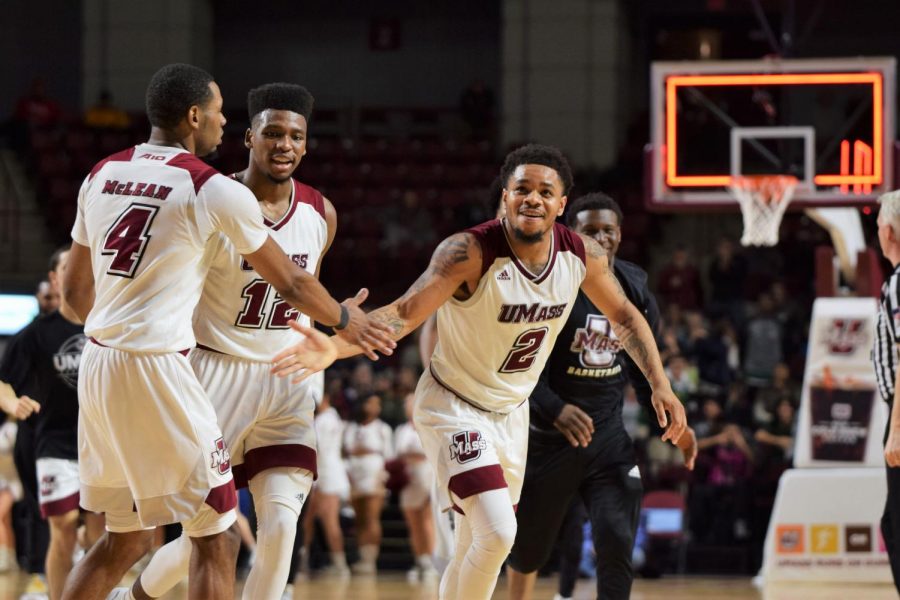 Katherine Mayo
Katherine Mayo
Pipkins may have found a way out of Chicago, but his journey to escaping the city isn’t over. After this season, he has two years left to refine his game, to try and parlay collegiate success into a professional career and an honest living.
As much as he loves Chicago, he knows that staying there forever is neither safe nor sustainable, and that there are greener pastures to chase after he graduates. He dreams of earning enough money playing professionally to get out of the city, to move his “Pops out of Chicago, and live comfortable.”
“If the NBA happens, it happens,” Pipkins says. “If I can go overseas and make whatever…I’d love to make six figures someday, playing this game.”
For now, Pipkins is just following the flow, grateful every step of the way. There are several paths for an undersized kid from South Side, Englewood, and playing ball on the big stage wasn’t supposed to be one of them. There are alternate versions of the Luwane Pipkins story that involve a street corner and a bag full of dope, or perhaps a jail cell or even worse.
“This basketball is just an outlet,” he says. “It changed my life, and I just want to thank basketball for getting me out of Chicago — thank my father for getting me out of Chicago. Many people don’t get out, I’m just one of the lucky ones.”
Pipkins isn’t afraid of anything or anyone within the confines of the hardwood, because he’s seen too much to be afraid anymore. Compared to what goes on in the three square miles of Englewood, there’s nothing between the lines of a basketball court that scares him.
He’s a “fearless rascal,” a virtuoso on the court and a caring soul off of it — a gunner to the bone and a dog on both ends. His breakout this season is proof of what happens when a big moment meets the kid that’s not afraid — when opportunity comes to those who rise to meet them.
UMass has seen its fair share of slumps recently, and is down to just six scholarship players, Pipkins included. There will be times, this year and beyond, where the Minutemen will need that fearless kid from Chicago to shoot them out of trouble, and he’ll happily oblige.
Because Luwane Pipkins is a shooter, and shooters gon’ shoot.
Amin Touri can be reached at [email protected] and followed on Twitter @Amin_Touri.
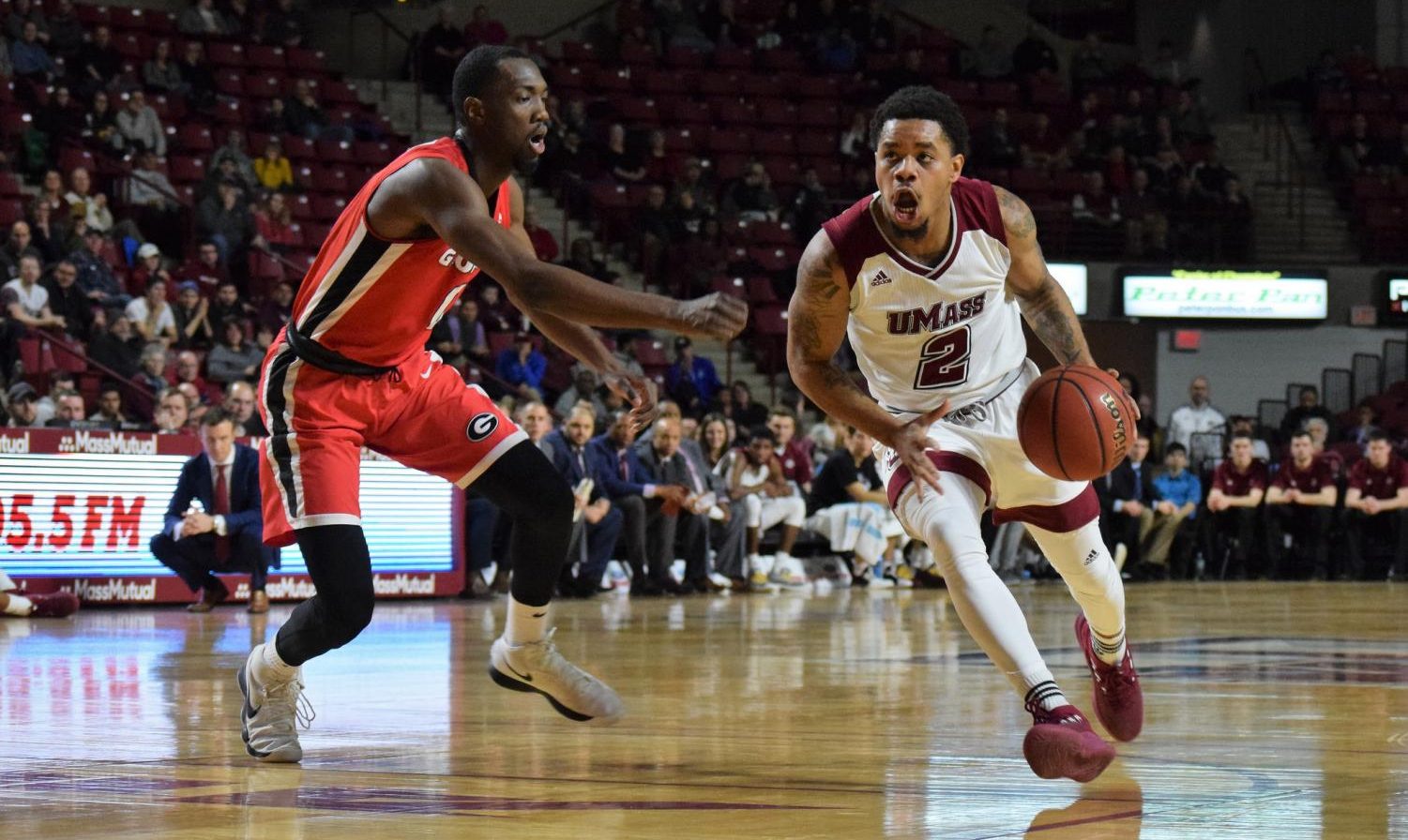
tom massetti • Feb 18, 2018 at 4:33 pm
I’ll echo the other comments and well written that reflects the man’s head and heart. If you didn’t like him before you will now!
Paige giannetti • Feb 17, 2018 at 7:41 am
Great article from both a sports angle and a person angle. Really makes you want to see success for Pipkins.. would love to hear more about him!
chris • Feb 15, 2018 at 9:19 am
tremendous story..inspiring
thank you for this piece
GO U